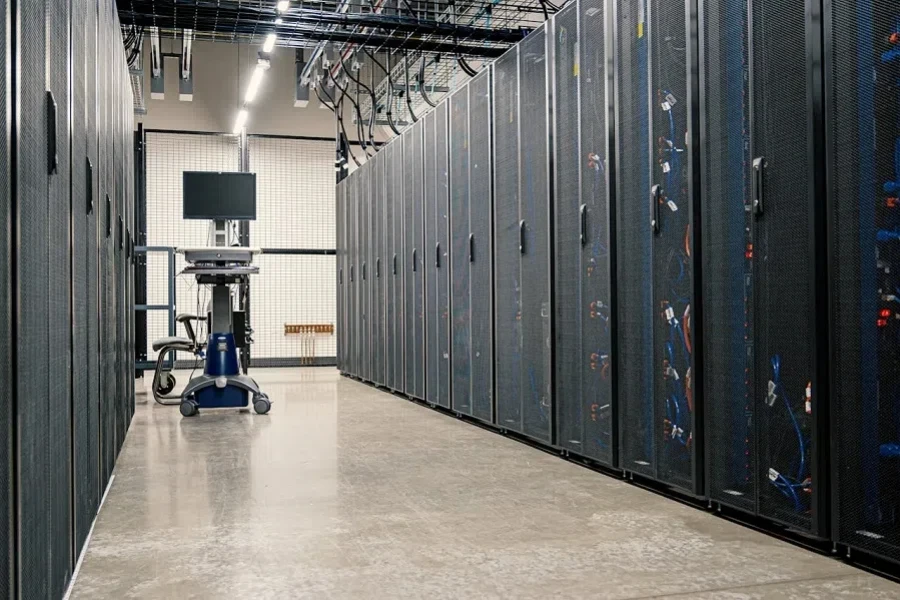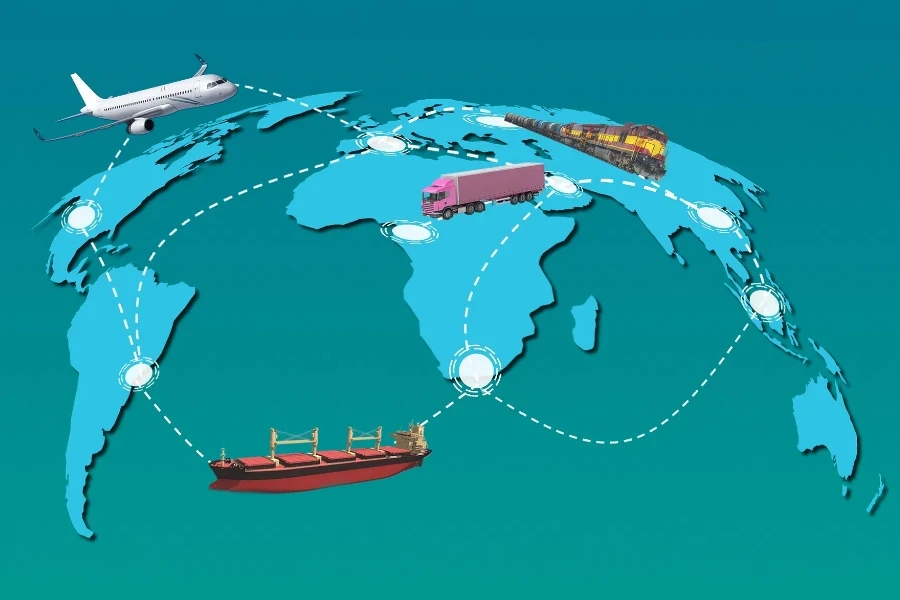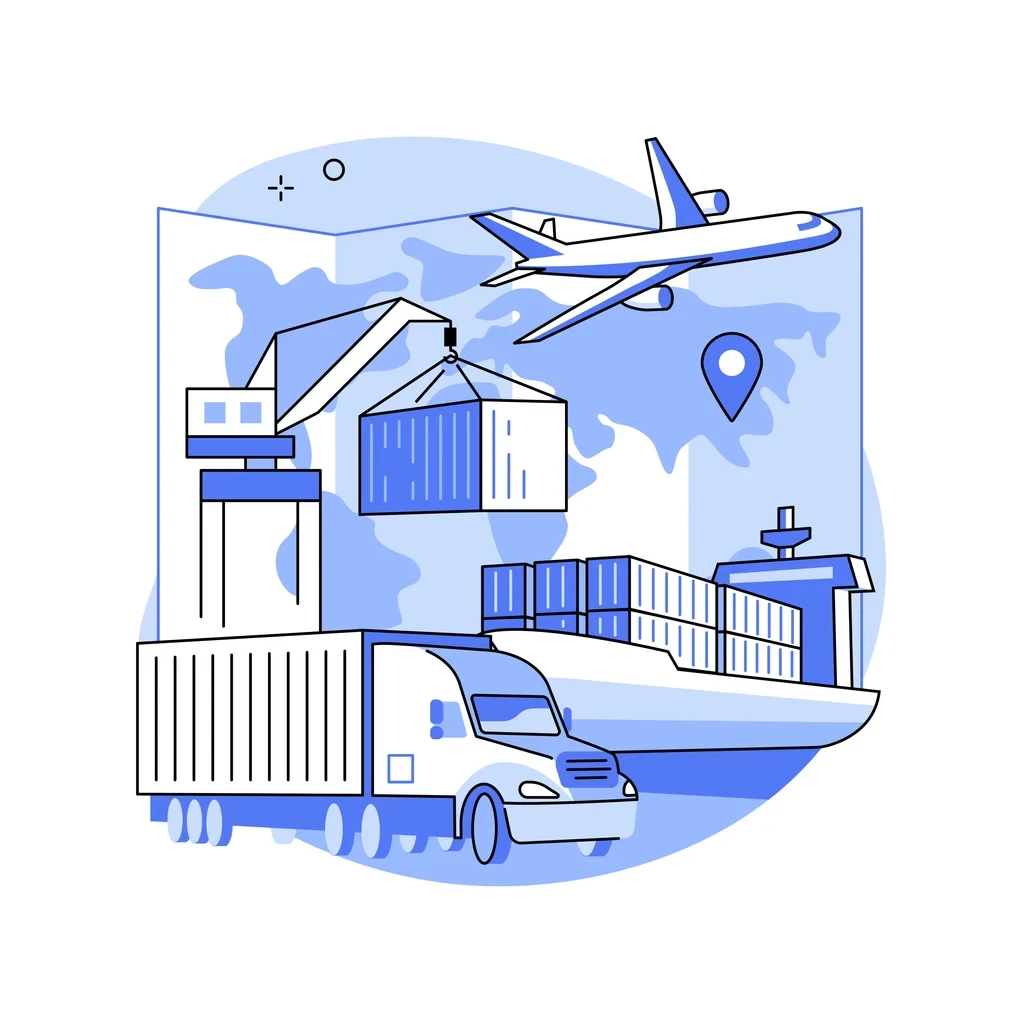With the widespread adoption of iCloud, Google Drive, and other cloud storage services, hardly any smartphone or Google application user remains unfamiliar with cloud services. On the contrary, the number of iCloud users has reportedly increased steadily and was expected to have hit 1 billion users last year. At the same time, the number of Google Drive users has grown by more than 100% over the past 5 years, reaching over 2 billion users this year compared to its Q3, 2018 record of 1 billion users.
As the world shifts towards a more cloud-based lifestyle, much like how end-user cloud services enhance convenience and security, cloud platforms in supply chain management can now integrate tasks such as inventory tracking, delivery coordination, and supplier management over the cloud. Made accessible and manageable through IoT and AI, both trivial and complex supply chain tasks can be more streamlined with cloud management.
Read on to explore the significance of cloud platforms in supply chain management, their core advantages, and how to leverage these platforms to support supply chain management.
Table of Contents
Understanding cloud platforms for supply chain management
Key benefits of cloud platforms in supply chain management
Using cloud platforms in supply chain management
Cloud-driven seamless flow
Understanding cloud platforms for supply chain management

Although the emergence of cloud computing applications can be dated back as far as about 30 years ago to the 1990s, the application of cloud technologies in supply chain management was not fully adopted until the 2010s, when IBM and Oracle launched their respective cloud-related supply chain management functions.
And while the term cloud supply chain management refers to a broad range of supply chain management processes managed by cloud-based technologies, the concept of cloud platforms for supply chain management is relatively more specific and forms as part of cloud supply chain management. Cloud-based services, software, and platforms such as Vendor Managed Inventory (VMI) and Enterprise Resource Planning (ERP) systems with supply chain modules/ functions included are examples of cloud supply chain management.
On the other hand, cloud platforms specifically designed to cater to supply chain management needs come in three cloud computing service models. These models, arranged according to their respective level of abstraction and explained in a way relevant to supply chain management, with clear platform examples for each, are as follows:

- Software-as-a-Service (SaaS)
This service model refers to software applications accessible and usable via the internet directly through cloud-based platforms. This model comes with the highest level of abstraction, containing the fewest components, as it represents a complete system with full functions. With SaaS, end users can use both general and specific supply chain functionalities over the Internet, depending on their requirements.
Examples of SaaS platforms include SAP Ariba, Zoho Inventory and Oracle Supply Chain Management Cloud, which cover supply chain management features from basic inventory management and customer relationship management (CRM) to warehouse management and advanced supply chain planning.
- Platform-as-a-Service (PaaS)
PaaS comes with an intermediate level of abstraction and is essentially a middle ground between SaaS and IaaS, providing a certain degree of flexibility in application development and control. Three essential parts of PaaS include development tools, software for developing and managing applications, as well as virtual infrastructure provided by cloud facilities. This infrastructure includes related storage, operating system software, security, and networking features.
Examples of PaaS platforms include Microsoft Azure PaaS and Google App Engine, both of which allow businesses to develop, run, test, and manage their tailored supply chain applications accordingly.
- Infrastructure-as-a-Service (IaaS)
IaaS is at the lowest level of abstraction and saves companies from obtaining any physical hardware or infrastructure by covering robust virtualized computing resources over the internet. Compared to SaaS and PaaS, IaaS allows maximum flexibility and control in building and managing supply chain applications, thanks to its capability for huge data storage, large-scale data handling, and hosting applications.
Examples of IaaS platforms include Google Compute Engine and IBM Cloud IaaS.
Unlike SaaS and PaaS which focus on applications usage and development, these platforms go a step further to cover hosting and backend operations, including complex websites and applications. Businesses can rely on them to operate websites even during peak seasons or cope with rapid growth in global supply chain dealings.
Key benefits of cloud platforms in supply chain management

A report in December 2023 revealed that over 50% of the surveyed enterprises used the cloud to host their essential business applications in 2023. Meanwhile, 76% of the survey participants believed that AI would be an important part of their supply chain operations over the next three years. These results signify the popularity and confidence level of companies towards cloud and AI development. But what exactly are the benefits of cloud platforms in supply chain management?
In fact, these benefits hinge significantly on the strength of cloud computing. These qualities, in a nutshell, provide the management and operation of the entire supply chain processes with more agility and resilience, which are the essential attributes in keeping the supply chain management well-coordinated and effective.
For instance, the fact that cloud computing helps to eliminate the need for costly hardware and infrastructure, which risks becoming obsolete over time, is provenly constructive. This is in light of the reality that the operation of the whole supply chain system can often be quite volatile, as it is subject to many uncertainties due to external uncertainties. The virtual infrastructure of cloud platforms, therefore, provides unprecedented reassurance in scalability and flexibility to supply chain management.

In the meantime, while these virtual deployments allow for significant savings in one-time investments over hardware and infrastructure purchases, they also enable more controllable monthly operational budgets. This is because virtual setups support modular offerings with preferred customization possibilities, which typically feature pay-per-use options that, in turn, make dynamic budgeting more feasible.
Operational efficiency can also be greatly improved since there is no need for subsequent hardware maintenance and upgrades, saving both time and manpower. Another critical feature that aids in a smooth operation is the increased visibility and transparency towards the entire supply chain process and operation, as all crucial processes are integrated seamlessly over the cloud with easy, verifiable, and secure access via the internet.
As a result, all staff members and management involved can promptly check and identify any potential issues and discrepancies, which further enhances responsiveness and adaptability in supply chain management.
Using cloud platforms in supply chain management
Instead of looking into the general and broad types of management functions that the cloud platforms can offer for supply chain management, which can be too expansive in understanding the specific critical functions and applications of the relevant features, let’s zoom in on each of them directly.
Streamlining procurement and supplier management

Sourcing with relevant, realistic forecasting is the beginning of every procurement and supplier management process in supply chain operations. Thankfully, this can be effectively managed through synchronized data, digitized and gathered from various sources by cloud platform solutions. Further analyzed by cloud-based data analysis, such data is instrumental in enhancing forecasting accuracy, which can in turn shape and improve the sourcing strategies, benefiting the supplier management process.
The integrated nature of cloud platforms leads to another significant advantage—enhanced communication empowered by centralized information and updates. This can facilitate better communication with different suppliers, keeping all parties aligned. What’s more, using EDI software included in cloud platforms can automate communications, serving as part of the overall automated procurement process that reduces errors and improves efficiency.
Lastly, use cloud features to track and report quality levels according to different products and customers, providing quality monitoring to keep up the quality of suppliers and materials.
Optimizing inventory and logistics

Optimization of inventory management and logistics can be greatly enhanced by cloud platforms based on two main key features of cloud-based technologies: automation and real-time data access. For example, by utilizing barcode scanning and IoT sensors, cloud platforms can automate processes such as tracking and reordering inventory, ensuring optimal inventory management performance. At the same time, the data from these automated operations can be accessed in real time, further optimizing storage and logistics with up-to-the-minute insights into inventory.
These real-time updates include instant details on order management, transportation, and the entire shipping process, all of which can be remotely accessed and analyzed directly through cloud platforms to allow for swift adjustments and more effective management of the overall logistics process.
Integrating and monitoring the entire supply chain

The real-time data sharing and advanced analytical capabilities provided by cloud platforms through their rich web applications and in-memory databases can facilitate and improve cross-functional collaborations among different supply chain stakeholders since these tools highly increase the effectiveness of seamless communication and optimized data processing.
At the same time, these collaborations across different parties are consolidable through the centralized data management approach and unified dashboard interfaces that most cloud platforms are equipped with. Such unified dashboards typically cover functions like demand forecasting, inventory management, and order processing, while also capable of enhancing the integration of all critical supply chain features and enabling real-time monitoring of major business processes, including logistics and procurement.
With such a unified and comprehensive view, the overall supply chain visibility is elevated to a true end-to-end level that enables a complete view of the supply chain for better, real-time monitoring and integration across diverse critical functions.
Enhancing after-sales and returns

While effective order fulfillment and reliable, timely deliveries are important in shaping the customer experience, exceptional customer service is equally vital for keeping customers coming back and winning loyalty. That’s why efficient after-sales services and returns management through automated, secure, and reliable processes available over cloud platforms are useful in streamlining the entire after-sales process to enhance the overall customer experience and meet their expectations to maximize customer satisfaction.
All these impactful after-sales and returns policies are not achievable without the comprehensive data analytics insights offered by cloud platforms, which guide better-informed supply chain decisions. The real-time nature of cloud platforms for all relevant data significantly amplifies transparency and control over after-sales services and returns management, forming a holistic approach promising a more superior customer service experience.
Cloud-driven seamless flow

Cloud platforms specialized for supply chain management provide a revolutionized way to manage the overall supply chain operations, representing a seamless cloud-based operation in almost all relevant processes, from procurement and inventory to logistics and after-sales services. By leveraging three service models of cloud computing, namely: Software-as-a-Service (SaaS), Platform-as-a-Service (PaaS), and Infrastructure-as-a-Service (IaaS), these cloud platforms can offer multiple benefits, including scalability, flexibility, improved visibility, and cost reduction.
Businesses can make full use of cloud platforms for their supply chain management over the cloud, access remotely and securely to manage procurement, logistics, inventory, and after-sales services more efficiently, anytime anywhere with end-to-end visibility that delivers a comprehensive view for better decision-making.
For more in-depth information about logistics, procurement, and inventory management, visit Alibaba.com Reads from time to time. Stay informed with the latest industry updates, expert tips, transformative ideas, and practical advice to drive business forward.

Looking for a logistics solution with competitive pricing, full visibility, and readily accessible customer support? Check out the Alibaba.com Logistics Marketplace today.



